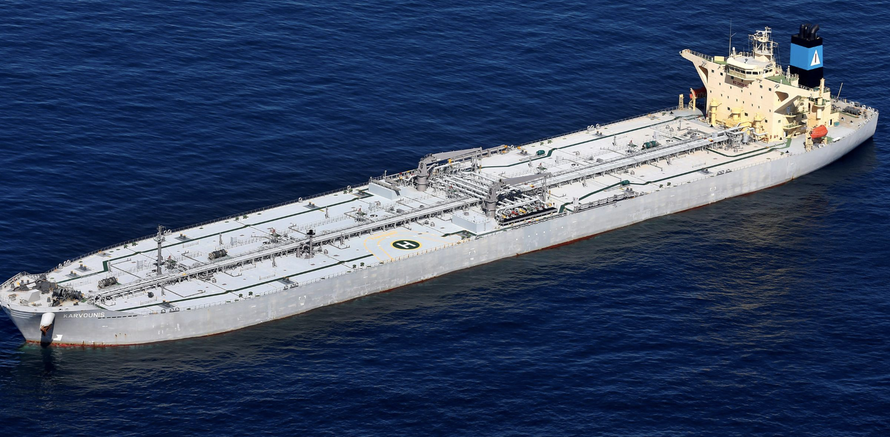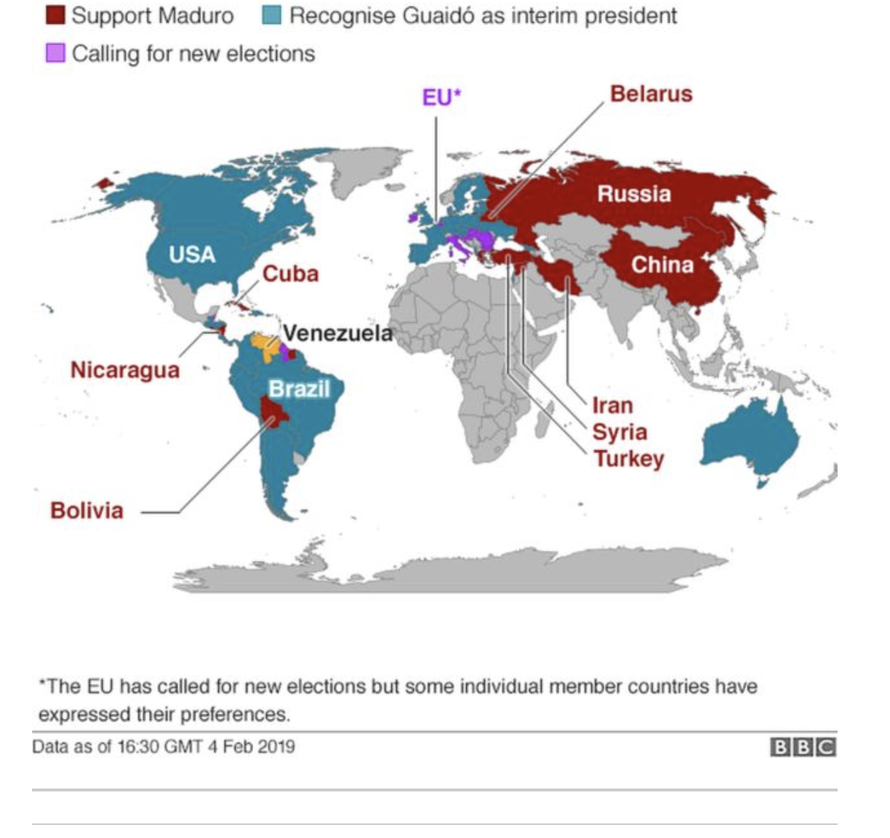On Monday evening, the embattled regime of Venezuelan dictator Nicolas Maduro suffered its latest blow when 11 of the 14 members of the “Lima Group” – an organization created with the singular aim to bring about a “peaceful end” to the crisis in Latin America’s socialist paradise – backed opposition leader Juan Guaido as the legitimate ruler of Venezuela.
In a declaration issued by the group, the governments of Argentina, Brazil, Canada, Chile, Colombia, Costa Rica, Guatemala, Honduras, Panama, Paraguay and Peru “reiterate their recognition and support for Juan Guaidó” and called on the international community “to take measures to prevent the Maduro regime from conducting financial and trade transactions abroad, from having access to Venezuela’s international assets and from doing business in oil, gold and other assets,” according to the BBC.
And in the latest sign that military conflict remains a possibility (after all, both President Trump and National Security Advisor John Bolton have insisted that the door to a military intervention is still open), when asked about whether a civil war is inevitable, Maduro replied that “no one could answer that question with certainty.” While Guaido, who is struggling to convince the Venezuelan military to abandon Maduro and back his upstart parallel government, definitively ruled out a war as an option.
Meanwhile, RIA reported Tuesday morning that Maduro is hoping to arrest the slide in Venezuelan oil production by boosting output to 2.5 million barrels per day (from less than 1 million b/d currently).
But much to the chagrin of Russian state-controlled oil giant Rosneft, US sanctions against Venezuelan oil firm PDVSA have left a flotilla of ships carrying some 7 million barrels of Venezuelan crude stranded in the Gulf of Mexico. Some of the oil was ordered before the US sanctions came into play, as buyers took advantage of PDVSA’s open-market firesales ahead of the sanctions. Other buyers are stashing oil aboard the 12 tankers until they figure out where to put their money, according to Reuters.
According to the US sanctions, payments for Venezuelan oil are supposed to go into escrow accounts that will ultimately be handed over to Guaido. But the accounts haven’t been set up yet.
“There were many cargoes of Venezuelan crude already in the Gulf when sanctions were announced,” said a trader who deals with PDVSA. Others are stuck because holders “cannot find who to sell them to due to sanctions,” the trader said.
The tankers had been chartered by regular U.S. buyers of Venezuelan oil, including Chevron Corp, PDVSA’s refining unit Citgo Petroleum and Valero Energy, and trading houses that sell to refiners.
“Everybody is still working through the mechanics of things, still trying to figure out how freights are going to get paid and is sitting on the sidelines waiting for this to roll out,” said one ship broker on Monday who was not authorized to speak publicly.
[…]
Separately, a few tankers that had waited for weeks to lift oil bound for U.S. customers left the Venezuelan port of Jose over the weekend without loading, according to Refinitiv data.
The oil fleet in Gulf waters grew as a bottleneck earlier formed around Venezuelan ports by tankers awaiting authorization to load. PDVSA has said it will only sell to certain customers that prepay for cargoes.
Outside of U.S. waters, there were also tankers loaded with Venezuelan crude and idling in the Caribbean and Europe, the Refinitiv data shows.
In another example of how US sanctions can halt global trade in a given asset, we pointed out on Monday how trading in Venezuelan bonds had virtually frozen, with not a single trade crossing the tape on Monday, following US sanctions, as even buyers and sellers in Europe have been de facto barred from trading the bonds.
Of course, foreign buyers of Venezuelan crude who are looking for a workaround of the US dollar-based financial system have at least one option at their disposal: They could always pay for Venezuelan oil in petros.
via ZeroHedge News http://bit.ly/2t8oDQe Tyler Durden

